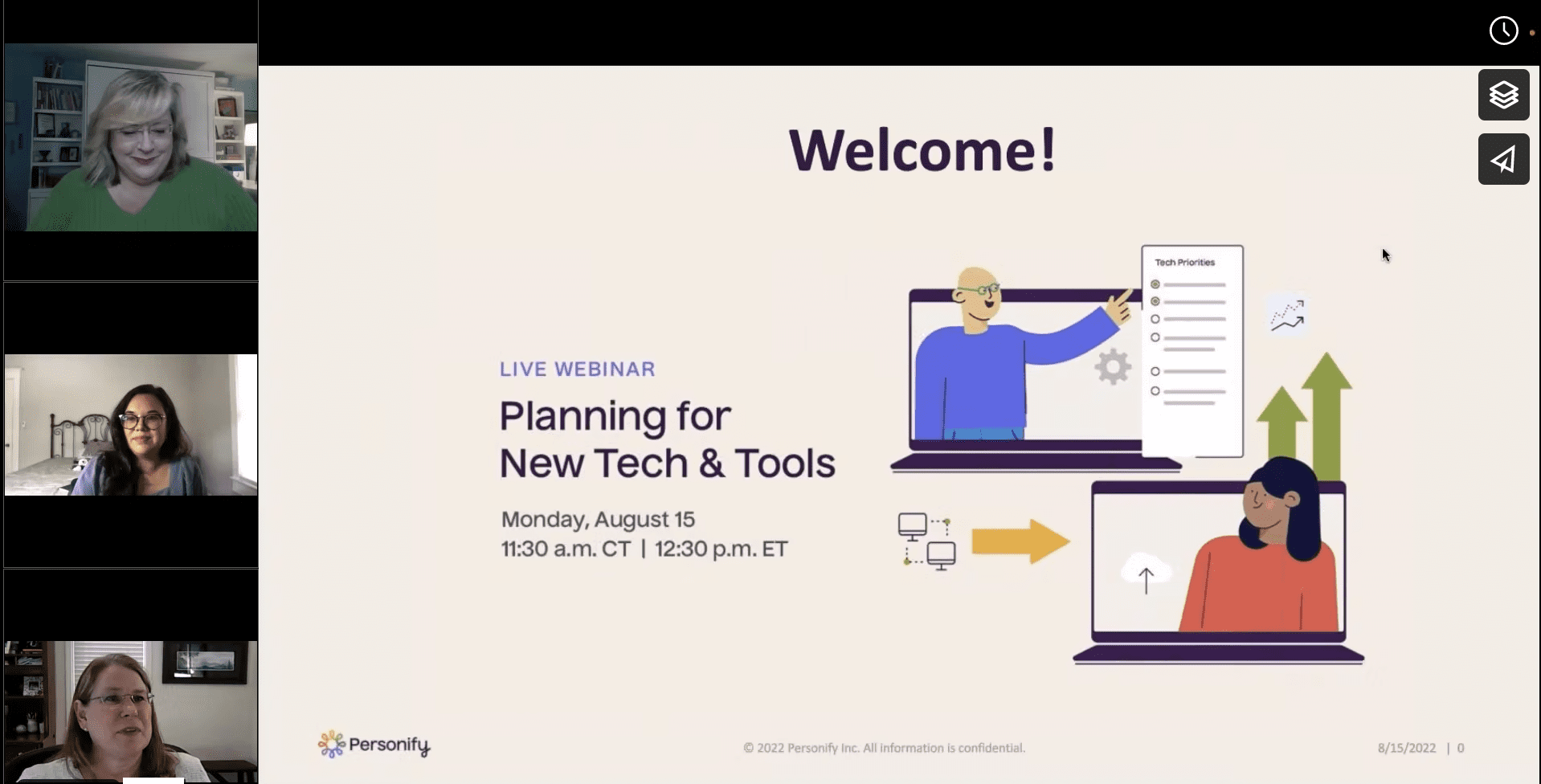Get the top insights from our recent webinar.
This time of the year marks the upcoming change of the season, kids going back to school, and for many associations and nonprofits, strategic planning is just around the corner.
And a hot topic that comes up during a lot of strategic planning conversations is around the tools and technology that keep our organizations running and our missions moving forward.
Conversations about tech can be difficult because not everyone on staff or the board works with tech, and because talk about tech often turns into a conversation about resources, which have become stretched thin for many organizations over the past few years.
But new tech can also be invigorating as new tools emerge that could mean more benefits for your members, more efficiency for your staff and, ultimately, more visibility into and growth for your organization.
Taking into account both sides of the tech conversation, we invited Rebecca Achurch, Founder of Achurch Consulting with over 20 years in the association and IT leadership, and Janna Knapp, Senior Director of Professional Services with Personify, who has been leading tech clients and professional services for about 10 years, to talk about their top tips for planning for new technology…and how associations and nonprofits can save some time and costs along the way.
The Top Moments in “Planning for New Tech & Tools”
1. “Pre-Planning” is the new planning stage.
When people think about properly planning for new tech and tools, they think about meeting with their board and staff to develop a budget, timeline, team, etc. But Rebecca likes to talk about a very important, but often neglected, “pre-planning” stage.
Pre-planning is all about determining what the expectations for the overall strategy will be, looking at what the organization really needs so prioritization comes easier and looking at the type of support that will be needed.
“Don’t set a budget or timeline during this stage,” Rebecca stresses.
Janna agrees and goes further in saying that the pre-planning stage is served by getting as specific as possible. This can mean getting as detailed as examining individual staff members’ goals and priorities. If, for example, you know that your teammate, Susan, will oversee parts of the tech implementation, but her biggest event is in the fall, you’ll want to consider that in your timeline.
2. Biggest “red flag” when choosing a tech partner
Depending on an organization’s goals, size and resources, an association may choose to partner with a consulting firm or an association management company to help them select, implement and/or manage their technology on an ongoing basis.
These types of partners can be lifesavers if there’s a gap in expertise or simply not enough time to coordinate their technology, but like any partnership, there are things you want to watch out for when choosing a tech partner.
When asked if there are any “red flags” organizations should watch for as they’re planning for new tools, Rebecca warned against choosing a “yes, partner!” She says that if a partner is consistently answering all your requests with a resounding “yes” without any qualifying statement or follow-up questions, it can indicate unrealistic expectations and result in missed timelines and objectives.
Speaking of missed timelines, Janna also stressed that if your partner is missing deadlines, especially in the early stages of implementation, it’s important to address them straight away.
3. Setting your biggest priorities during your tech implementation
Something that Rebecca and Janna agreed can make or break your tech implementation is the ability to set the right expectations and priorities.
Admittedly, setting priorities is often a difficult task when you have competing deadlines, big goals and are up against limited resources. To help prioritize certain strategies and timelines, Janna said that you definitely can and should prioritize anything related to financials.
In other words, if you can’t collect fees, that should be a huge priority. And Rebecca and Janna wrapped up the conversation about prioritization saying that another problem you should always prioritize solving is anything that produces bad data. Data has become one of the most reliable ways to understand member behavior and make strategic decisions for the organization, so it must be as clean and true as possible.
Get more insights by streaming the webcast
We could fill a few blog posts with more great insights and advice Rebecca and Janna shared with us regarding tech budgets, timelines, bylaws, and more, but we’ll let you enjoy the webinar at your leisure. After watching the webcast, feel free to reach out with any of your questions about association technology and tools. It’s our favorite topic.
